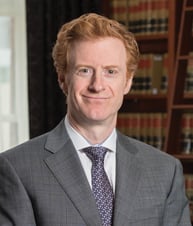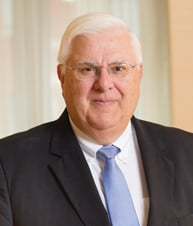The Trump Administration is exploring new strategies to counter currency manipulation in international trade. One approach being discussed is to consider the practice of currency manipulation to be a countervailable subsidy, allowing the U.S. Department of Commerce (DOC) to initiate an anti-subsidy investigation against countries allegedly manipulating their currency.
What Would It Mean for Trade?
Treating currency manipulation as a countervailable subsidy would allow DOC to initiate anti-subsidy investigations based on a country allegedly manipulating its currency exchange rate. The rationale is that an artificially undervalued currency improperly and unfairly subsidizes exports and causes injury to the U.S. industry. Upon an affirmative determination, U.S. imports from the currency-manipulating country would be subject to an additional – or countervailing – duty to offset the benefit gained by the currency manipulation.
Background
In 2010, the U.S. House of Representatives passed legislation to this effect by a 348-to-79 margin, but the Senate did not take up the bill before it adjourned. During the previous administration, both the U.S. Trade Representative and DOC entertained administrative actions against alleged currency manipulation by China but ultimately decided not to pursue this issue. Treating China as a currency manipulator was seen as a direct confrontation and was believed to be counterproductive to the constructive dialogue the U.S. was having with China.
What Is the Current Scenario?
On February 17, 2017, Committee on Ways and Means Trade Subcommittee Ranking Member Bill Pascrell (D-NJ) and Reps. Sander Levin (D-MI) and Tim Ryan (D-OH) sent a letter to President Trump urging him to go beyond executive action and support legislation that would direct the DOC to treat currency manipulation as a countervailable subsidy. This approach is likely to find support among key Senate Democrats who have urged similar legislation in the past, including Sens. Schumer (NY), Brown (OH) and Stabenow (MI).
Is It WTO-Compliant?
The World Trade Organization (WTO) has narrow rules against subsidies. To find currency manipulation as a countervailable subsidy, it must satisfy three elements: there is a financial contribution by the government, the benefit is specific, and there is a quantifiable benefit. A subsidy contingent upon export performance, however, is deemed to be specific. Even so, to frame currency manipulation as an export subsidy is not an easy task, and many say doing so is outside of the WTO’s scope. Former WTO Director General Pascal Lamy stated that the appropriate forum to discuss currency manipulation was the International Monetary Fund, not the WTO.
Unanswered Questions and Risks
- What would be the criteria to determine currency manipulation under new regulation? Currently the U.S. Treasury Department is required by law to evaluate currency practices of major trading partners. In October, Treasury concluded that no major trading partner of the United States met the standard of manipulating the rate of exchange between its currency and the U.S. dollar for purposes of preventing effective balance of payments adjustments or gaining unfair competitive advantage in international trade. Would new regulations invalidate Treasury’s current economic criteria to determine manipulation?
- Although this plan is less confrontational against China, as it would not be the sole target, it still risks retaliation from any targeted country against the United States via either domestic regulation or through a WTO dispute.
- Such a plan could trigger other countries to take similar measures against the United States, arguing that U.S. Federal Reserve policies might also constitute currency manipulation.
What Should You Watch For?
- Monitor Commerce Department draft regulations and executive orders announced by the new administration.
- Assess the impact of currency manipulation from other countries in certain U.S industry-specific sectors. Companies concerned about this matter should consider contacting the U.S. government.
*The Night Note has a long tradition in Washington, where for years it has been a channel used by cabinet secretaries to alert the White House of critical issues and vital news that should be among the President’s priority concerns. We’ve adapted it here to communicate timely issues that concern the trade and investment community stemming from new policy actions and decisions taken by the Trump Administration.

